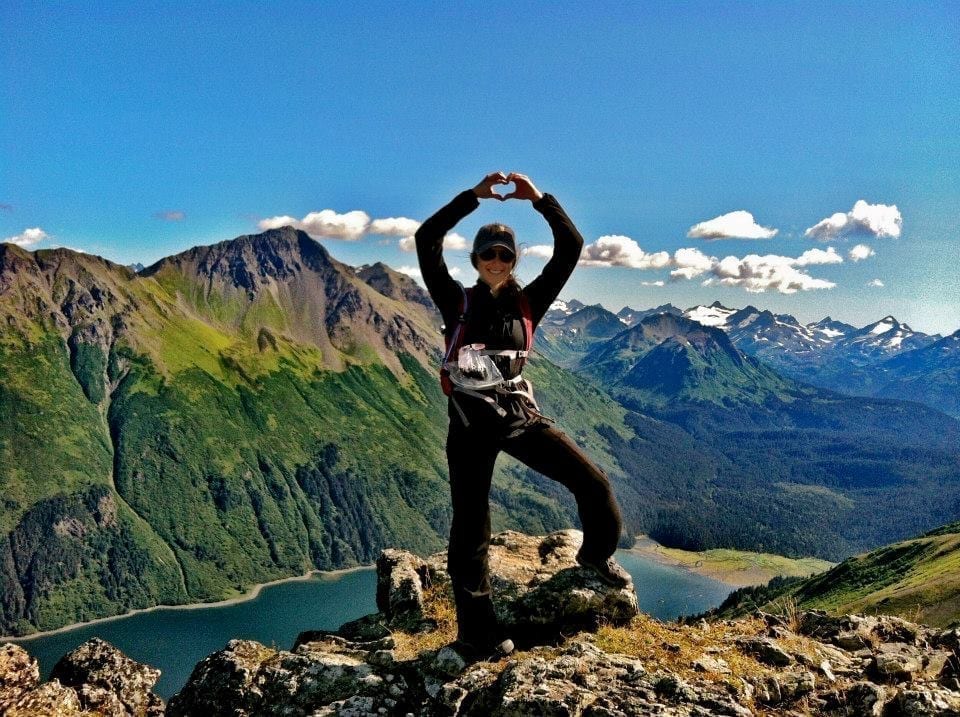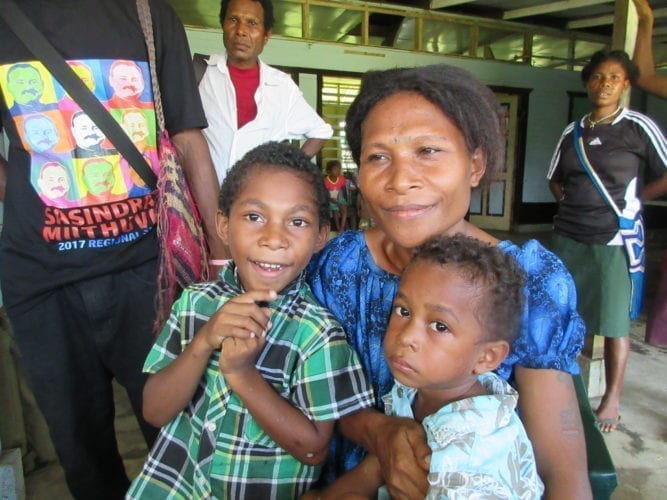DMUmagazine recently encountered alumni who have taken their expertise and service to various corners of the world. Below are glimpses of their experiences. Do you have experiences off the beaten path that you’d like to share? Contact DMUmagazine Editor Barbara Dietrich Boose at barbara.boose@dmu.edu.
Practicing in “the last frontier”

Later, as a sprinter for Wartburg College, she required physical therapy for an injury. “I got better, which got me intrigued by the healing power of the body,” she says. After graduating from DMU’s doctor of physical therapy program in 2010, she became a traveling physical therapist, gaining experiences in a variety of states and clinical settings. She began pursuing her grade-school goal when a colleague at a Texas hospital shared his connections in Alaska.
“Within a month I had packed my life in two suitcases,” she recalls. “I lived out of those suitcases for about nine months, working as an independent contractor and feeling my way around the state.”
Nicholas Newbury, D.O.’12, had an earlier acquaintance with the nation’s 49th state. The Seattle native ran a charter fishing boat in southeast Alaska during five summers while he was an undergraduate. One of those summers he fell in love with his soon-to-be-wife, Erin, and they both fell in love with the area. After he completed a residency in obstetrics and gynecology at Michigan State University, where he also lectured on osteopathic manipulative treatment, the couple made their home in Juneau, Alaska’s capital.
“We love mountains, the ocean and the outdoors,” Newbury says. “It still has the feeling of the last frontier.”
His and Cannon’s paths crossed because of their practices: He’s the only obstetrician/gynecologist serving southeastern Alaska, and she has a niche practice in pelvic health rehabilitation as well as prenatal and postpartum care.
“I do a lot of outreach to doctors, which is how Nick and I connected,” says Cannon, who now practices with Juneau Physical Therapy. She went to Newbury’s practice, Juneau Obstetrics and Gynecology, to observe a hysterectomy; conversing later, they discovered their shared DMU connection. They now share mutual admiration of each other’s expertise.
“Nick and his wife revamped a clinic in town in an amazing way,” Cannon says. Says Newbury: “I refer a lot of patients for pelvic floor health. It’s crucial for preventing prolapse later in life.”
The two alumni agree Alaska offers big perqs.
“The scale here is incredible, and it’s beyond-words beautiful,” she says. “Being outdoors here is one of my self-care techniques.”
“God had a purpose for my skills”

In 2016, Mark Williams, D.P.M.’87, sold his Olympia, WA, practice to Kelley Gillroy, D.P.M.’05, and retired, but he wasn’t finished being a physician. He became intrigued by Youth With a Mission (YWAM), a global movement of Christians that engages people “aged 9 to 90” in activities ranging from justice and the arts to family ministry and medicine. He contacted the group and explained his medical background; its staff decided he would be useful in Papua New Guinea (PNG) in the southwestern Pacific.
“They’d come to the conclusion I’d be doing wound care and vaccinations, but when I got there, they said, ‘We really need you to do primary care,’” he says. “I read up on malaria, typhoid and some other things I’d never heard of before. I was really thankful for the education I got at UOMHS [now DMU]. Classes I took with the osteopathic students came back to me.”
During two weeks in June 2017, YWAM team providers, representing several specialties, and health workers from the PNG Department of Health traveled about 200 miles along the coast in an old Japanese fishing vessel, providing more than 3,700 patient visits. Later that month, they provided more than 3,300 additional patient visits in 13 villages.
Entering and leaving PNG reminded Williams of C.S. Lewis’ The Chronicles of Narnia. “I felt like I was entering through the wardrobe, a place so different and amazing, then coming back through the wardrobe into the western world that we live in – each very different culturally, yet each needing our Lord and Savior just as much,” he wrote after the trip.
Williams observed the villagers’ poverty, lack of electricity and running water, and the toll that hard manual labor took on their health. At times the YWAM team was in real danger, such as when their van was surrounded by a group of machete-wielding men. He admits struggling with having faith in the mission leaders and a ship captain 40 years his junior. But his biggest take-aways were the “power of prayer” and the many positive interactions the YWAM team had with the villagers.
“I was touched by the quick smiles and laughter of the children,” he says. “After our clinics in the village, ladies would give us food, not out of their abundance, as they relied upon subsistence living, but out of the joy of giving back…It was quite touching and life-altering.”
Service trip provides “a total reset”

“Serving the neuro population is where my passion lies, and why the Jamaica trip fit,” she says.
She supervised Elaine Rodriguez and Desiree Collins, then second-year DMU students. They provided home visits and worked with stroke camp patients in a rural area. “It was intense therapy,” Carroll says. “As a supervising therapist, I wasn’t doing all the hands-on therapy, but I was tired at the end of the day.”
She notes that physical therapy is relatively new to the Caribbean island nation, where stroke patients are more likely to be completely taken care of by loved ones rather than treated to regain function. The camp changed that attitude.
“The families of participants often stayed for part of the day, and it was fun to hear them say, ‘He couldn’t do that before.’ Having them acknowledge that was important,” Carroll says. “The level of motivation among patients blew my mind. Here, we have so much access to therapy, but in Jamaica, the patients worked so hard to get as much as they could out of stroke camp.”
In Minneapolis, Carroll’s practice typically has two students on site, including from DMU. “I love teaching, and I knew what type of clinical supervisor I wanted to be,” she says. “No question is dumb. Seeing that light bulb go on is the best feeling.”
For Rodriguez, seeing the stroke camp participants gain function was especially affirming. “It was powerful to see how quickly physical therapy can help. We saw huge improvements – not just physical but also psychological,” she says. “Kristel is a really good mentor; I still keep in touch with her.”
During her stay, Carroll’s husband, Jake, a mechanical engineer, came to Jamaica, where he helped with “fixer-up” projects at a school for deaf children. “He instantly felt welcome, and he got to see us and our patients interact,” she says. “He told me, ‘I have a whole new appreciation for what you do.’”
For Carroll, the experience was a “total reset” professionally and personally. “To get out of my comfort zone and feel the appreciation for what we did as a team were huge,” she says. “Then I got to come back and use some of the treatment ideas from the students. That mutual learning is so cool. As soon as I got home, I knew immediately that I wanted to go back.”

